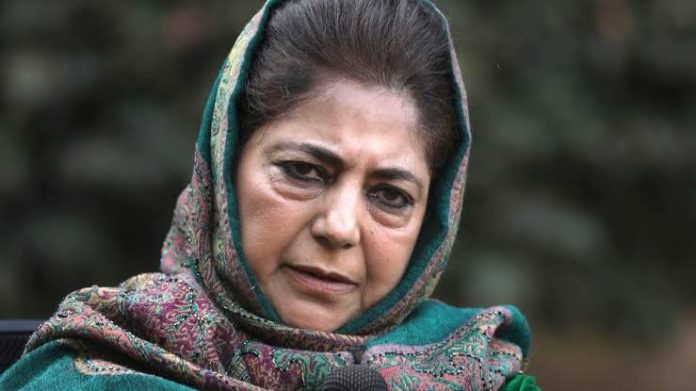Srinagar, July 14 ‘ 2024
Several prominent political figures in Jammu and Kashmir, including Mehbooba Mufti, the leader of the People’s Democratic Party (PDP), claimed they were confined to their homes on Martyrs Day.This annual observance honors the memory of 22 Kashmiris slain by the Dogra forces in 1931. Despite the absence of official confirmation, Mufti and others asserted that their residences were sealed off, preventing them from visiting the ‘martyrs’ graveyard,’ a symbolic site of Kashmiri resistance, she said to the India Today.
Mufti, a former Chief Minister of Jammu and Kashmir, lamented the restriction, describing it as a recurring attempt to suppress expressions of Kashmiri identity and historical remembrance. She highlighted the significance of commemorating those who sacrificed their lives during the struggle against oppression and authoritarianism.
Similarly, Sajad Lone, the chairman of the People’s Conference and a former separatist leader turned mainstream politician, voiced his bewilderment at being placed under house arrest without any justification provided by the authorities. This move, he argued, reflected a disconcerting trend of curtailing civil liberties in the region.
The situation on Martyrs Day also symbolizes broader political tensions in Jammu and Kashmir since the revocation of Article 370 in August 2019. This constitutional change led to the bifurcation of the state into two Union Territories, eliciting mixed reactions and sparking renewed debates on autonomy and governance.
In recent years, Martyrs Day had been a public holiday in Jammu and Kashmir, marked by official ceremonies attended by top political leaders. However, since 2020, it has been excluded from the list of gazetted holidays, reflecting the altered administrative and political landscape following the constitutional changes.
The absence of official commemorations this year underscores the evolving dynamics in the region, where traditional observances of historical events are increasingly met with administrative restrictions. Critics argue that such measures not only impede democratic freedoms but also deepen divisions and grievances among the populace.
The Supreme Court’s directive to expedite preparations for assembly elections in Jammu and Kashmir by September 30, 2024, adds another layer of complexity to the political environment. It underscores ongoing efforts to restore democratic processes and governance structures in the region amid persistent challenges and controversies.




